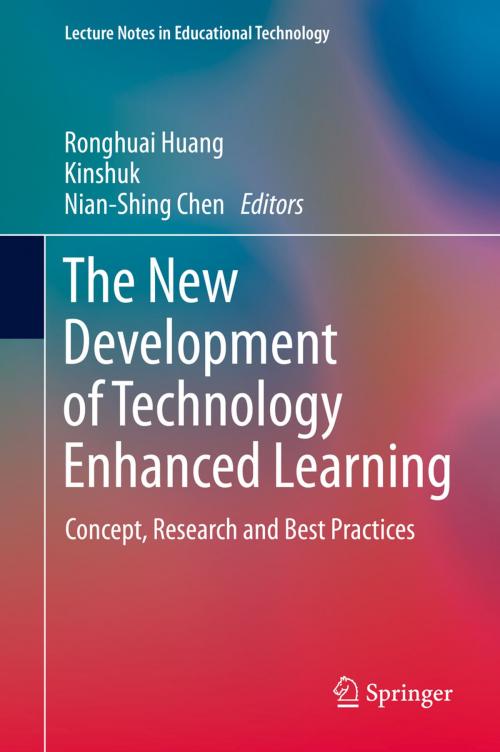The New Development of Technology Enhanced Learning
Concept, Research and Best Practices
Nonfiction, Reference & Language, Education & Teaching, Teaching, Computers & Technology| Author: | ISBN: | 9783642382918 | |
| Publisher: | Springer Berlin Heidelberg | Publication: | July 1, 2014 |
| Imprint: | Springer | Language: | English |
| Author: | |
| ISBN: | 9783642382918 |
| Publisher: | Springer Berlin Heidelberg |
| Publication: | July 1, 2014 |
| Imprint: | Springer |
| Language: | English |
The book addresses the main issues concerned with the new development of learning processes, innovative pedagogical changes, the effects of new technologies on education, future learning content, which aims to gather the newest concepts, research and best practices on the frontiers of technology enhanced learning from the aspects of learning, pedagogies and technologies in learning in order to draw a picture of technology enhanced learning in the near future. Some issues like “e-learning ... m-learning ... u-learning – innovative approaches,” “the Framework and Method for Understanding the New Generation Students,” “Context-aware Mobile Role Playing Game for Learning,” “ Pedagogical issues in content creation and use: IT literacy through Spoken Tutorials,” “Supporting collaborative knowledge construction and discourse in the classroom,” “Digital Systems for Hierarchical Open Access to Education,” “ Using Annotated Patient Records to Teach Clinical Reasoning to Undergraduate Students of Medicine,” “ Utilizing Cognitive Skills Ontology for Designing Personalized Learning Environments” and “Using Interactive Mobile Technologies to Develop Operating Room Technologies Competency” are discussed in separate chapters.
The book addresses the main issues concerned with the new development of learning processes, innovative pedagogical changes, the effects of new technologies on education, future learning content, which aims to gather the newest concepts, research and best practices on the frontiers of technology enhanced learning from the aspects of learning, pedagogies and technologies in learning in order to draw a picture of technology enhanced learning in the near future. Some issues like “e-learning ... m-learning ... u-learning – innovative approaches,” “the Framework and Method for Understanding the New Generation Students,” “Context-aware Mobile Role Playing Game for Learning,” “ Pedagogical issues in content creation and use: IT literacy through Spoken Tutorials,” “Supporting collaborative knowledge construction and discourse in the classroom,” “Digital Systems for Hierarchical Open Access to Education,” “ Using Annotated Patient Records to Teach Clinical Reasoning to Undergraduate Students of Medicine,” “ Utilizing Cognitive Skills Ontology for Designing Personalized Learning Environments” and “Using Interactive Mobile Technologies to Develop Operating Room Technologies Competency” are discussed in separate chapters.















